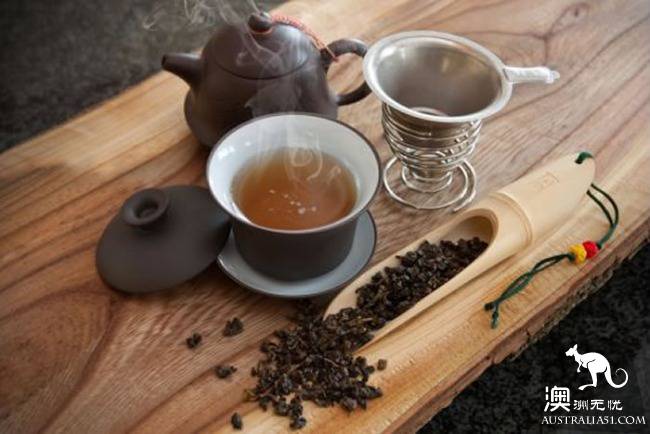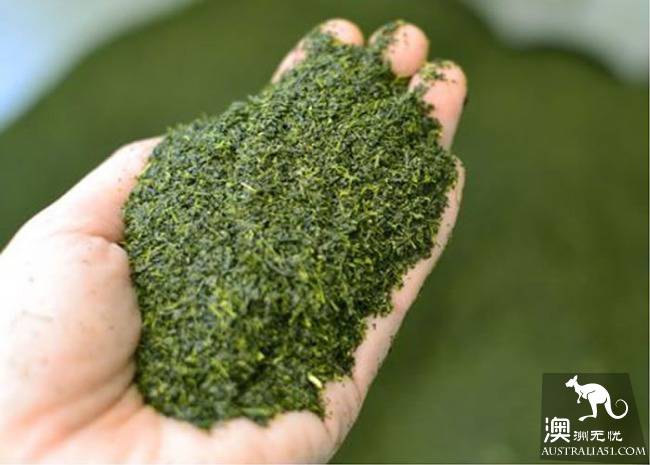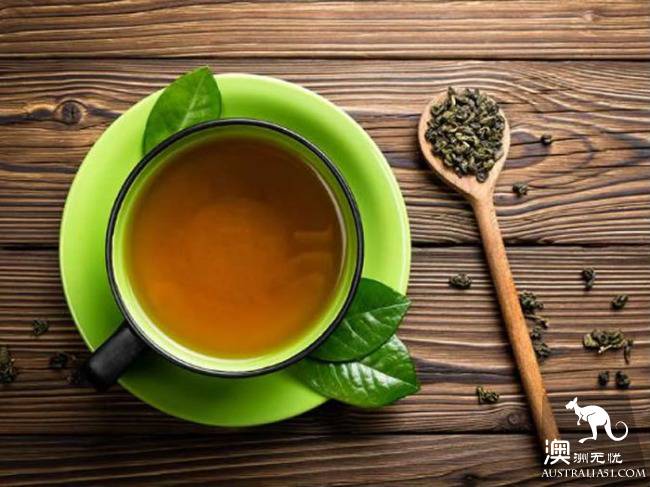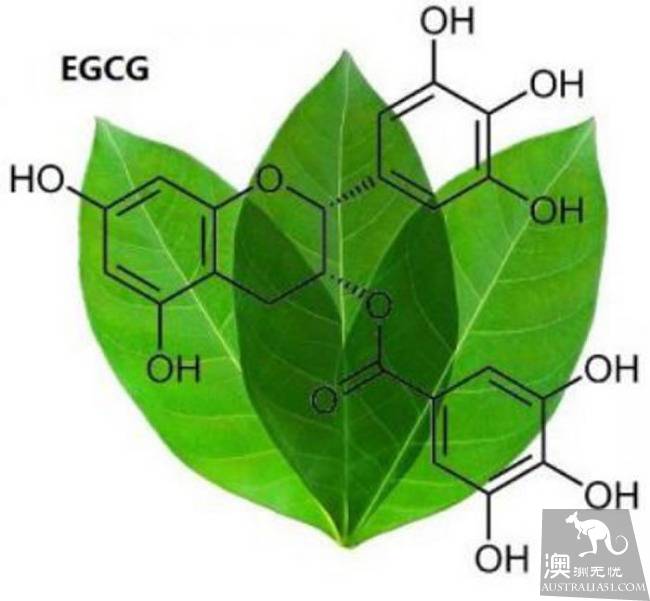If there is coffee in Australian blood, it is tea in Chinese blood.
Chinese love of tea can be traced back to the Shennong period, Lu Yu < Tea Sutra > Cloud: "Tea for drink, hair from Shennong, smell in Lu Zhou Gong." As early as Shennong period, tea and its medicinal value have been discovered, and gradually evolved from medicinal to daily life drinks.
Even in Australia, where coffee culture prevails, many Chinese cannot change the habit of drinking tea. But many people drink tea, but do not know the relationship between tea and cancer.
22 "secrets" about tea

1. There are 160 countries in the world and 3 billion people love tea.
According to statistics, there are a total of 160 countries and regions of the world, nearly 3 billion people have the habit of drinking tea.
This means that three out of every four countries like tea; two in five.
2. China produces 1.98 million tons of tea per year, with a per capita output of 566 grams.
In 2014, China's total tea production reached 1.98 million tons, the world's largest tea producer, accounting for 39.4 percent of global production. However, China's tea consumption per capita is only 566 grams, ranking 19th in the world, and only 1/5 of Turkey's 3157 grams per capita ranked first.
3. The culture of tea drinking in the Pearl River Delta is the most prosperous.
Huang Yafei, director of the tea department and doctoral supervisor at South China Agricultural University, said Guangdong is China's largest tea consumption market, with per capita consumption reaching 1000 grams. Among them, the Pearl River Delta region's per capita sales of tea ranked first in the country-2000 grams, more than the UK per capita sales.
The 43, 000-year-old history of Chinese tea was defeated by British brands
China is the hometown of tea. The history of Chinese tea drinking can be traced back to Shennong period. But ironically, the world's largest tea brand today comes from Britain, where no tea is produced. The annual output value of the British national tea brand is as high as 23 billion RMB, which is almost 76% of the annual output value of 70, 000 tea factories in our country!
5, Bucha: there is a truth about how expensive it is.

A jin of good sprout tea has 60, 000 to 80, 000 sprouts! All are tea pickers a hand-picked, expensive truth ah.
6. Tea can live long.
A survey of the secrets of longevity for centenarians found that 40% of centenarians were tea-addicted and 80% had tea-drinking habits. As a result, the centenarian who likes to drink tea is called "Tea Life" by longevity research institute.
7, antioxidant effect, equivalent to 12 bottles of white wine
According to the results of the antioxidant test, as far as the antioxidant effect is concerned,
One 300 ml tea = 1.5 bottles of red wine = 12 bottles of white wine = 12 glasses of beer = 4 apples = 5 onions = 7 cups of fresh orange juice!
Therefore, the tea thing, more and more good.
8. Anti-aging effect: 18 times stronger than vitamin E
Japanese researchers have shown that tea polyphenols have an anti-aging effect that is 18 times stronger than vitamin E.
9, weight loss effect: a cup of tea a day, lose 3 jin of meat
Tea also has the effect of weight loss, drinking 8 to 10 grams of tea a day, within 12 weeks can use the effect of tea itself to lose about 3 jin of fat.
10, improve immunity

The tea research institute of the Chinese Academy of Agricultural Sciences has proved thousands of experiments on immunity, carcinogenesis, alcoholism, weight loss, blood lipid, mating and so on in mice. Mice fed with tea or injected with tea extract had healthier vital signs than those fed with tea. It can be seen that the health benefits of tea are very obvious.
Tea is like falling in love
Tea contains amino acids that promote large amounts of dopamine, which produces love. This is why many people have a love-like feeling of happiness when drinking tea.
12. The Hiroshima phenomenon of resistance to nuclear radiation and carcinogenesis
In August 1945, the Hiroshima atomic bomb explosion killed more than 100,000 people and injured hundreds of thousands of survivors. It is understood that several years after explosion, many people suffer from leukemia or various other cancers, and die in succession. However, a group of people survived: tea farmers, tea merchants, tea addicts, this magical phenomenon is known as the Hiroshima phenomenon.
13. Japan advocates drinking tea for all people to fight cance
In 1999, Japan's government launched a program called "drinking Tea to prevent Cancer for all." 8522 people were surveyed and followed up for 10 years. The survey found that 419 of the respondents had cancer. Women with tea drinking habits developed cancer about seven years later than those who did not, and men had a 3.2-year delay.
14. Green tea can reduce the incidence of cance

The "Green Tea and Prostate Cancer Disease study" published by the Australian University of Science and Technology, case Western Reserve University and the National Cancer Center of Japan shows that men who drink green tea are more than 60 percent less likely to suffer from the disease than those who do not.
15. Tea polyphenols are the star of all cancers.
More than 4,000 "Tea Cancer" monographs published by authoritative departments tell us that tea can really fight cancer. Because tea polyphenols in tea EGCG is the main component of almost all cancers, especially for uterine cancer, skin cancer, lung cancer, colon cancer, prostate cancer, liver cancer, kidney cancer, breast cancer, and so on. At the same time, the study found that tea and cancer drugs taken at the same time will improve the efficacy of drugs.
16. Drinking tea in women can reduce the incidence of ovarian cance
Researchers at Sweden's Karolinska Medical School investigated more than 60,000 women aged 40 to 76, 301 of whom were diagnosed with ovarian cancer. The study found that women who drank less than one cup of tea a day were 18 percent less likely to develop ovarian cancer than women who did not or rarely drink tea. Women who drank one to two cups a day were 24 percent less likely to have ovarian cancer, and women who drank more than two cups a day were about 46 percent less likely to have ovarian cancer. It can be seen that the more tea drinking, the lower the risk of ovarian cancer.
Drinking black tea often helps reduce the prevalence of Parkinson's disease.
Researchers at the National University of Singapore tracked 63257 Singaporean Chinese aged 45 to 75 over a 12-year period. The survey found that older adults who drank black tea were 71 percent less likely to develop Parkinson's disease than those who did not drink tea.
18. Drinking tea every day to reduce the risk of cardiovascular disease
Epidemiological studies in Japan showed that men who drank 10 small cups of tea a day had a 42% lower risk of cardiovascular disease compared with men who drank less than 3 cups a day; women could reduce their risk by 18%.
19. Tea is not easy to get cataracts.
According to statistics, among cataract patients, tea drinking habits accounted for 28.6%; non-tea drinking habits accounted for 71.4%. From this we can speculate that people who drink more tea are less likely to have cataracts.
20. Drinking tea can relieve diabetes mellitus symptoms.
Researchers from Fukuyama Medical and Pharmaceutical University in Japan found that 1300 diabetic patients drank tea brewed with cold open blisters for six months, and 82 percent of diabetic patients showed a significant reduction in symptoms. Even about 9% of diabetics have completely returned to normal blood sugar levels.
21. EGCG can resist HIV.
British and American scientists report in the Journal of Allergy and Clinical Immunology: tea polyphenols EGCG can effectively prevent the spread of HIV in the human body, once immunized, HIV will not have the opportunity to approach.
22. Tea polyphenols kill Escherichia coli.
The medical research team at Showa University in Japan conducted an experiment in which 10000 highly toxic Escherichia coli 0 / 157 were placed in 1 ml of tea polyphenol solution diluted to 20 percent of normal tea water. Five hours later, the researchers found, all the bacteria died, leaving none. In this way, tea polyphenols in tea can also be highly effective anti-virus, protect the intestines and stomach.
Finally, in this way, tea is not only a delicious drink, but also has extraordinary medicinal value.
After reading this article, would you like to drop your sodas and milk tea immediately and join the ranks of drinking tea?